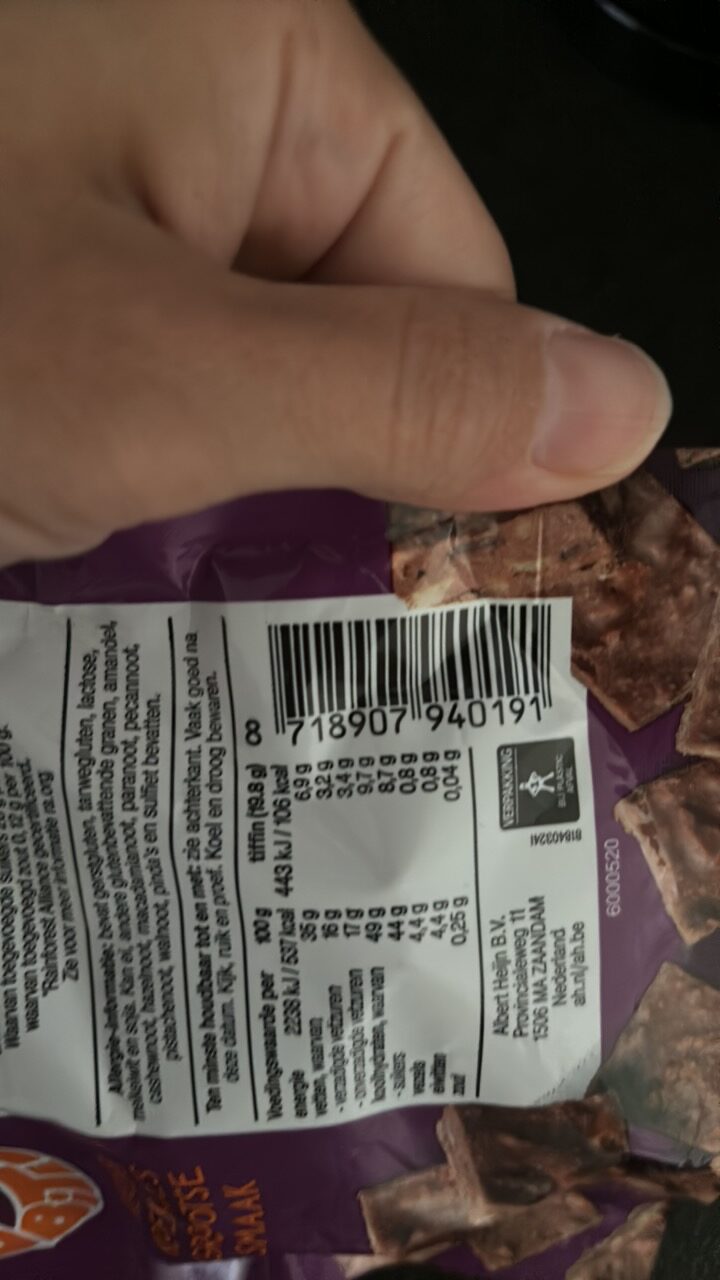
Barcode: 8718907544191
tiffin
HALAL
📝 Reason: All ingredients listed are either plant-based or derived from Halal sources, with no Haram substances identified. Sulfites (E220) are generally considered Halal unless derived from Haram sources, which is not indicated here. Therefore, the product is deemed Halal.
🏷️ Category: Snacks
📄 Certificates: Verpakking, Bio Plastic, Ah.Nl/Ah.Be, Rainforest Alliance, Vegetarisch
Ingredients:
Details
Understanding the Halal Status of Tiffin
Tiffin is a popular snack that raises the question of its halal status among consumers. In this post, we will delve into the ingredients, E-numbers, and certifications to confirm if Tiffin is halal. The product has been found to be halal, as we will explain below.
Halal Status Overview
The halal status of Tiffin has been confirmed with all ingredients listed being either plant-based or derived from halal sources. A thorough examination reveals that there are no Haram substances present in the product.
Ingredients Breakdown
The ingredients for Tiffin are as follows:
- Tarwegluten: A plant-based ingredient generally considered halal. This is a gluten derived from wheat, commonly used in various food applications. Learn more about Tarwegluten.
- Lactose: Derived from milk, lactose is typically considered halal unless it has been contaminated with Haram substances. Read more on lactose’s halal status.
- Pistachenoot: Another plant-based ingredient that is generally considered halal. Pistachios are a healthy nut choice and safe for consumption. More about Pistachenoot.
- Walnoot: Like pistachios, walnuts are also considered halal. This nutritious nut is rich in healthy fats and beneficial for health. Discover more about Walnoot.
- Pinda’s: This refers to peanuts, which are plant-based and halal. They are valued for their protein content. Peanuts information.
- Amandel: Almonds are another halal ingredient found in Tiffin. They are packed with nutrients and often praised for their health benefits. Learn about Amandel.
- Sulfiet (E220): This is a preservative known as sulfites, which is generally considered halal unless derived from Haram sources. The halal status depends heavily on the origin of the preservative. Sulfites discussion.
Certifications and Brand Context
Tiffin holds various certifications that reinforce its marketability as a halal snack. It is not just packaged innovatively using bio-plastic materials, but the brand has also obtained certifications from authorities like Rainforest Alliance, ensuring ethical practices in sourcing ingredients.
Conclusion: Is Tiffin Halal?
After reviewing all ingredients and their sources, we confirm that Tiffin is indeed halal. Consumers can enjoy this snack without concerns regarding compliance with halal dietary laws. Each element, from the gluten to the nuts, is verified as halal, making Tiffin a suitable choice for those seeking halal snack options.
